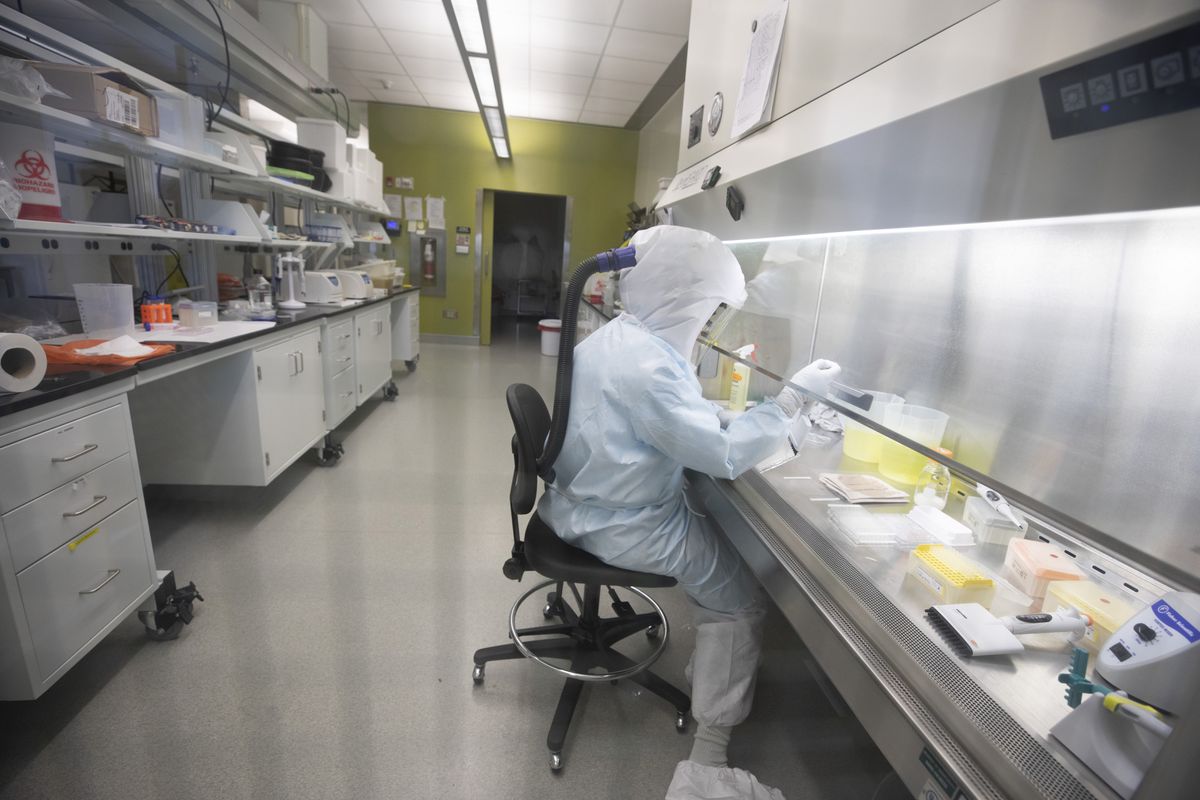Women living in states with abortion bans obtained the procedure in the second half of 2023 at about the same rate as before the U.S. Supreme Court overturned Roe v. Wade, according to a report released Tuesday.
Women did so by traveling out of state or by having prescription abortion pills mailed to them, according to the #WeCount report from the Society of Family Planning, which advocates for abortion access. They increasingly used telehealth, the report found, as medical providers in states with laws intended to protection them from prosecution in other states used online appointments to prescribe abortion pills.
“The abortion bans are not eliminating the need for abortion,” said Ushma Upadhyay, a University of California, San Francisco public health social scientist and a co-chair of the #WeCount survey. “People are jumping over these hurdles because they have to.”
Abortion patterns have shifted
The #WeCount report began surveying abortion providers across the country monthly just before Roe was overturned, creating a snapshot of abortion trends. In some states, a portion of the data is estimated. The effort makes data public with less than a six-month lag, giving a picture of trends far faster than the U.S. Centers for Disease Control and Prevention, whose most recent annual report covers abortion in 2021.
The report has chronicled quick shifts since the Supreme Court’s Dobbs v. Jackson Women’s Health Organization ruling that ended the national right to abortion and opened the door to enforcement of state bans.
The number of abortions in states with bans at all stages of pregnancy fell to near zero. It also plummeted in states where bans kick in around six weeks of pregnancy, which is before many women know they’re pregnant.
But the nationwide total has been about the same or above the level from before the ruling. The study estimates 99,000 abortions occurred each month in the first half of 2024, up from the 81,000 monthly from April through December 2022 and 88,000 in 2023.
One reason is telehealth, which got a boost when some Democratic-controlled states last year began implementing laws to protect prescribers. In April 2022, about 1 in 25 abortions were from pills prescribed via telehealth, the report found. In June 2024, it was 1 in 5.
The newest report is the first time #WeCount has broken down state-by-state numbers for abortion pill prescriptions. About half the telehealth abortion pill prescriptions now go to patients in states with abortion bans or restrictions on telehealth abortion prescriptions.
In the second half of last year, the pills were sent to about 2,800 women each month in Texas, more than 1,500 in Mississippi and nearly 800 in Missouri, for instance.
Travel is still the main means of access for women in states with bans
Data from another group, the Guttmacher Institute, shows that women in states with bans still rely mostly on travel to get abortions.
By combining results of the two surveys and comparing them with Guttmacher’s counts of in-person abortions from 2020, #WeCount found women in states with bans throughout pregnancy were getting abortions in similar numbers as they were in 2020. The numbers do not account for pills obtained from outside the medical system in the earlier period, when those prescriptions most often came from abroad. They also do not tally people who received pills but did not use them.
West Virginia women, for example, obtained nearly 220 abortions monthly in the second half of 2023, mostly by traveling — more than in 2020, when they received about 140 a month. For Louisiana residents, the monthly abortion numbers were about the same, with just under 700 from July through December 2023, mostly through shield laws, and 635 in 2020. However, Oklahoma residents obtained fewer abortions in 2023, with the monthly number falling to under 470 from about 690 in 2020.
Telehealth providers emerged quickly
One of the major providers of the telehealth pills is the Massachusetts Abortion Access Project. Cofounder Angel Foster said the group prescribed to about 500 patients a month, mostly in states with bans, from its September 2023 launch through last month.
The group charged $250 per person while allowing people to pay less if they couldn’t afford that. Starting this month, with the help of grant funding that pays operating costs, it’s trying a different approach: Setting the price at $5 but letting patients know they’d appreciate more for those who can pay it. Foster said the group is on track to provide 1,500 to 2,000 abortions monthly with the new model.
Foster called the Supreme Court’s 2020 decision “a human rights and social justice catastrophe” while also saying that “there’s an irony in what’s happened in the post-Dobbs landscape.”
“In some places abortion care is more accessible and affordable than it was,” she said.
There have no major legal challenges of shield laws so far, but abortion opponents have tried to get one of the main pills removed from the market. Earlier this year, the U.S. Supreme Court unanimously preserved access to the drug, mifepristone, while finding that a group of anti-abortion doctors and organizations did not have the legal right to challenge the 2000 federal approval of the drug.
This month, three states asked a judge for permission to file a lawsuit aimed at rolling back federal decisions that allowed easier access to the pill — including through telehealth.
